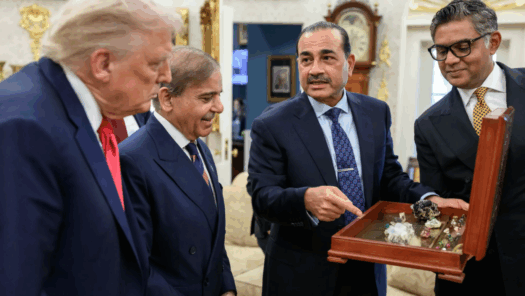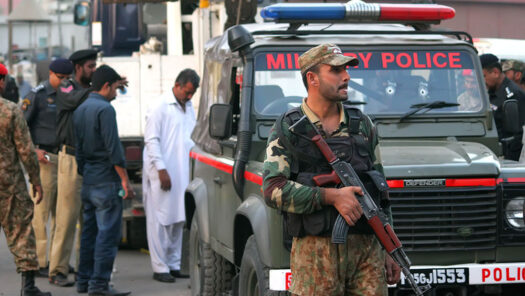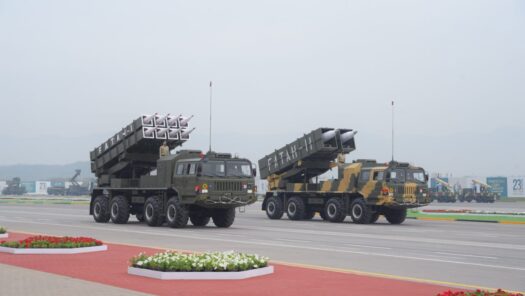Pakistan
Return to article
Next Generation Air Warfare in South Asia: Risks and Way Forward
In the early days of May 2025, India and Pakistan engaged in a multi-domain war. It was contested using 125 aircraft with ranges over 160 kilometers (km) as well as a variety of drones. For the first time in decades,…

Pakistan in 2025: Ascendant Abroad, Unsettled Within
Editor’s Note: This article is part of South Asian Voices’ annual Year in Review series. Browse the full series page here. What began as a year of presumed caution for Pakistan became an extraordinarily eventful one. Internationally, Pakistan found itself unexpectedly ascendant:…

पाकिस्तान के ख़तरनाक आतंकवादी त्रिगुट का सामना
आतंक के विरूद्ध वैश्विक युद्ध में दो दशक से अधिक समय तक अग्रिम देश रहने के उपरांत भी, पाकिस्तान को एक कठिन और बदलते ख़तरे का सामना करना पड़ रहा है। तहरीक-ए-तालिबान पाकिस्तान (टीटीपी), बलूच विद्रोह और इस्लामिक राज्य खोरासान…

پاک-سعودی دفاعی معاہدے کو بھارت کس نظر سے دیکھتا ہے: تاریخی محرکات اور مستقبل کے خدشات
حال ہی میں اعلان کردہ پاک-سعودی اسٹریٹیجک میوچول ڈیفنس ایگریمنٹ (ایس ڈی ایم اے) تزویراتی باہمی دفاعی معاہدہ بہت سے مشاہدین کے لیےباعثِ حیرت تھا۔ نو زائیدہ ’’اسلامی نیٹو‘‘ یا مسلم ممالک کے اجتماعی فوجی اتحاد سے متعلق بات چیت…

بجھاؤ یا جلاؤ؟ پاکستان کی راکٹ فورس اور جنوبی ایشیا میں انسداد کامخمصہ
بھارت کے ساتھ مئی 2025 کے تنازعے کے فوراً بعد جس میں پاکستان نے فوجی اہداف کے خلاف گائیڈڈ فتح راکٹ سیریز کا استعمال کیا، اسلام آباد کا اپنے 78ویں یوم آزادی کے موقع پر آرمی راکٹ فورس کمانڈ (اے…

Pakistan’s Rare Earth Ambitions Meet China’s Export Controls
Following a period of relative diplomatic isolation under the Biden administration, Pakistan seems to be enjoying what some have called its “year of diplomatic miracles” in 2025. From floating contribution to the International Stabilization Force in Gaza to nominating U.S.…